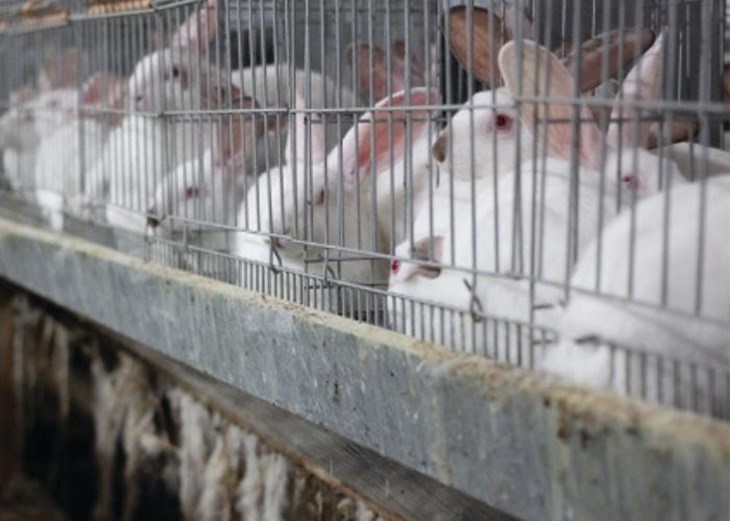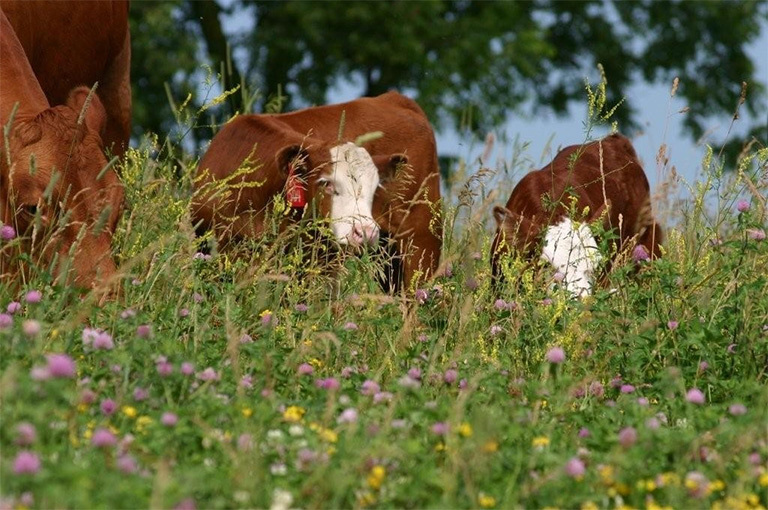
Our new undercover investigation out today (4 November) exposes the immense suffering of around 70 million rabbits still caged on farms across Europe and reinforces the urgent need for the European Commission to deliver its promised cage ban.
The disturbing footage filmed undercover on farms in both Italy and Poland, reveals rabbits in cages so small they can’t even stretch, some desperately chewing at the wires out of frustration, and others even confined in cages alongside dead rabbits. The conditions shown, which are representative of caged rabbit farming across Europe, fail to meet even their most basic behavioural needs.
Yet due to the Commission’s delay in banning caged animal farming and the absence of species-specific legislation protecting the welfare of farmed rabbits in the EU, these conditions remain perfectly legal.
Cages too small for rabbits to even stretch
The investigation - released as hearings begin in Brussels to select the new set of Commissioners, including those responsible for leading on this issue - witnessed rabbits:
- Cramped in cages so small they couldn’t stretch, hop or lift themselves up on their back feet – all highly-motivated natural behaviours;
- Confined in individual cages, despite them being social animals;
- Dead or sick, laying lifeless with their ears chewed off or unable to lift their heads straight up alongside living rabbits;
- Without materials to gnaw on to grind down their constantly growing teeth – leading to rabbits chewing at the wires of their cage or at each other's ears;
- Housed on uncomfortable wire floors, resulting in skin cuts, pressure sores or hock lesions;
- Panting heavily due to high temperatures, on two farms;
- With missing fur over much of their body, on one farm, likely indicating the presence of parasites or infection.
In Europe, around 77 million rabbits are slaughtered every year. It is estimated that around 90% of them are confined in cages, including nearly all of breeding does. Current EU regulations lack species-specific standards for rabbit welfare, allowing the widespread use of cages.
The EU Commission must keep its promises
In response to the successful European Citizens’ Initiative End the Cage Age, signed by over 1.4 million EU citizens, in 2021 the EU Commission gave a clear commitment to introduce a legislative proposal to end caged farming by the end of 2023. However, the EU’s executive failed to deliver on its promises and is yet to present a legislative proposal to ban cages.
Just weeks ago, we launched a new cage-free business report showing how major European food businesses are successfully transitioning to cage-free production and countries like Austria, Belgium and the Netherlands have already implemented cage-free systems, demonstrating their feasibility.
An overwhelming nine out of ten EU citizens demand an end to the use of individual cages and the Strategic Dialogue on the Future of EU Agriculture reflects a wide-spread consensus across the agrifood sector that cages must be phased out and calls for a proposal to revise the Animal Welfare legislation by 2026 at the latest.
Vinciane Patelou, Head of EU at Compassion in World Farming, said:
“This investigation clearly shows the systemic cruelty of caged farming across Europe. This is not about a couple of bad farms mistreating animals in certain countries, this is representative of caged rabbit farming throughout the EU in the absence of species-specific requirements for the welfare of farmed rabbits in EU law.
“Cages simply cannot meet the physiological and behavioural needs of farmed animals and their use is unnecessary – viable humane alternatives are already available and have been successfully adopted by many major European food businesses.
“Now more than ever, the European Commission must act and fulfill its commitment to present proposals to ban caged systems for rabbits and all other farmed animals as soon as possible and by 2026 at the very latest, as recommended by the Strategic Dialogue report.”
We are sending a summary of our investigation findings to European lawmakers and Commission officials and are urging supporters to call on the EU Commission to deliver the proposals as a priority and explicitly include them in the Commission’s work programme.
